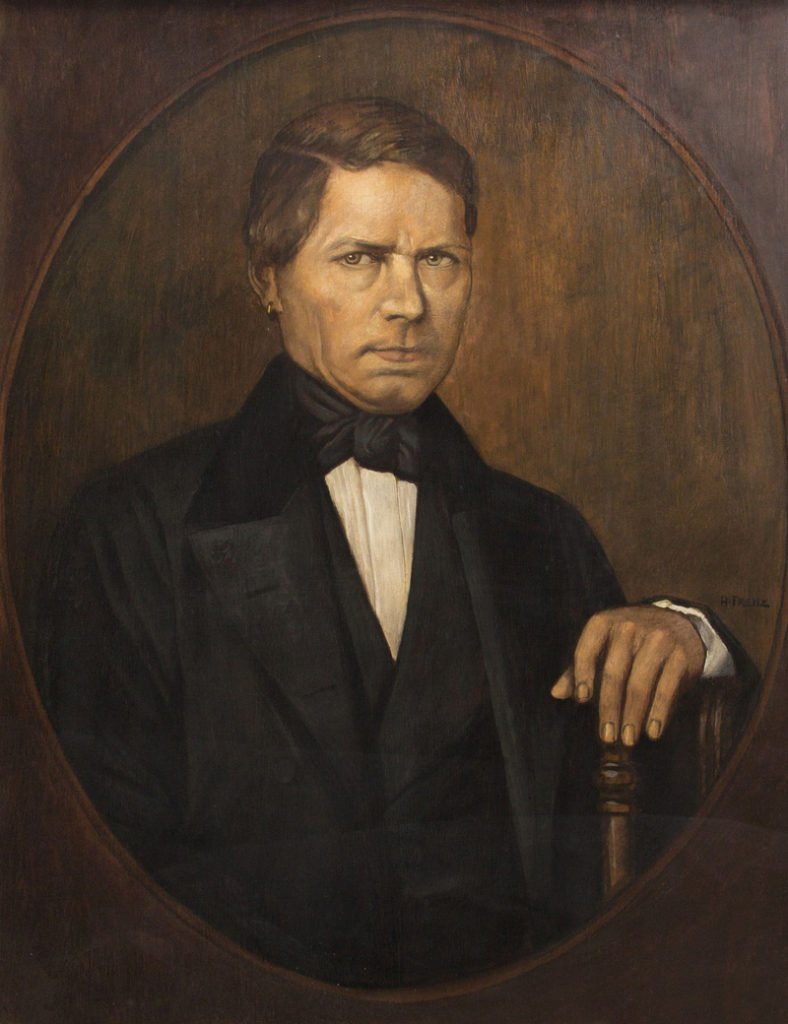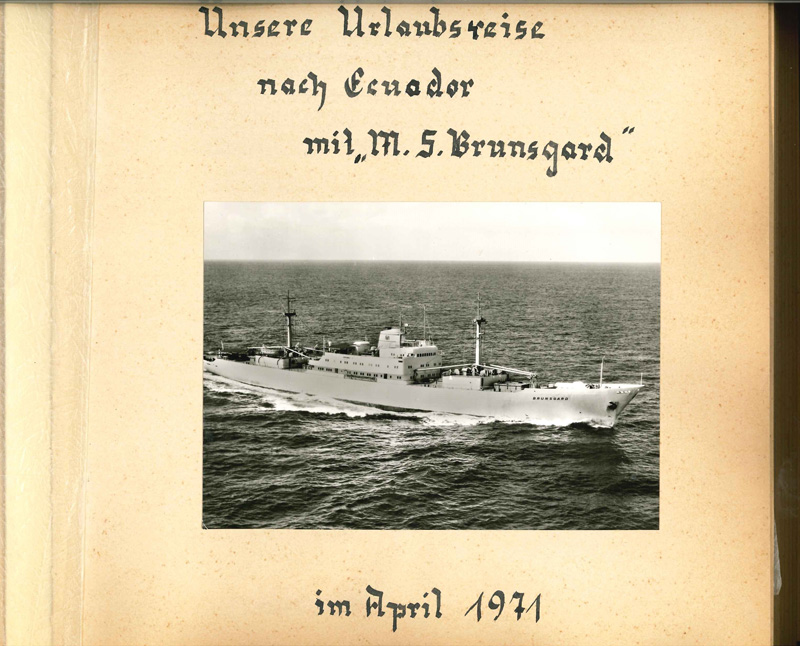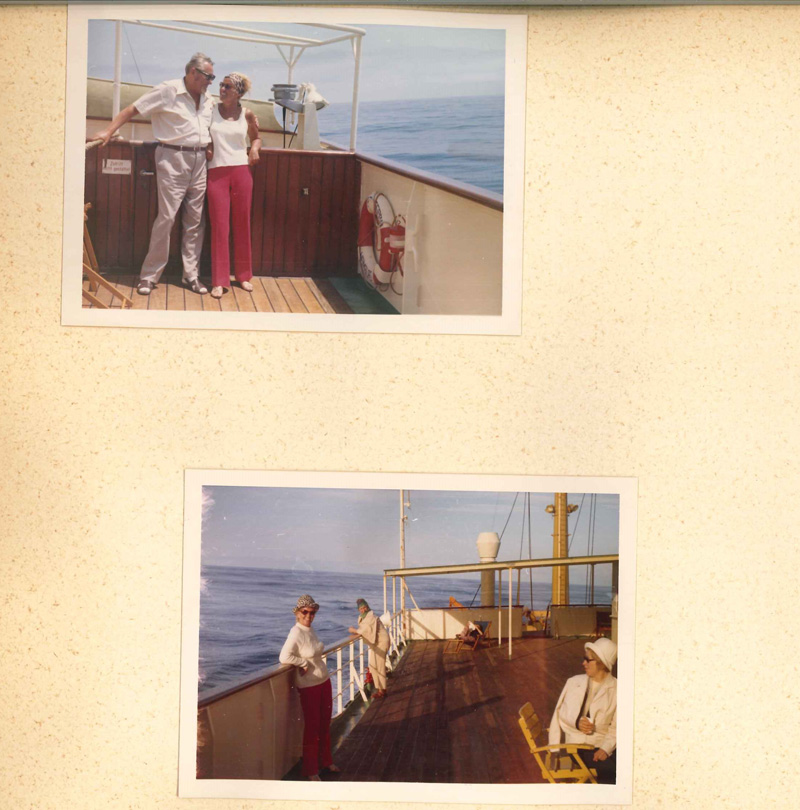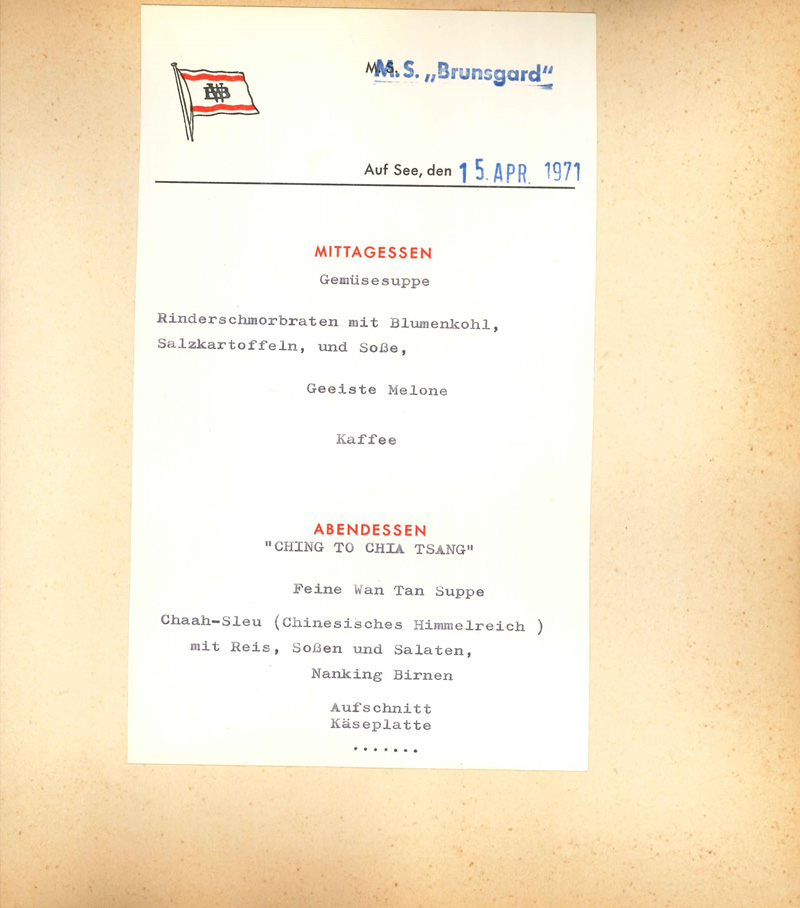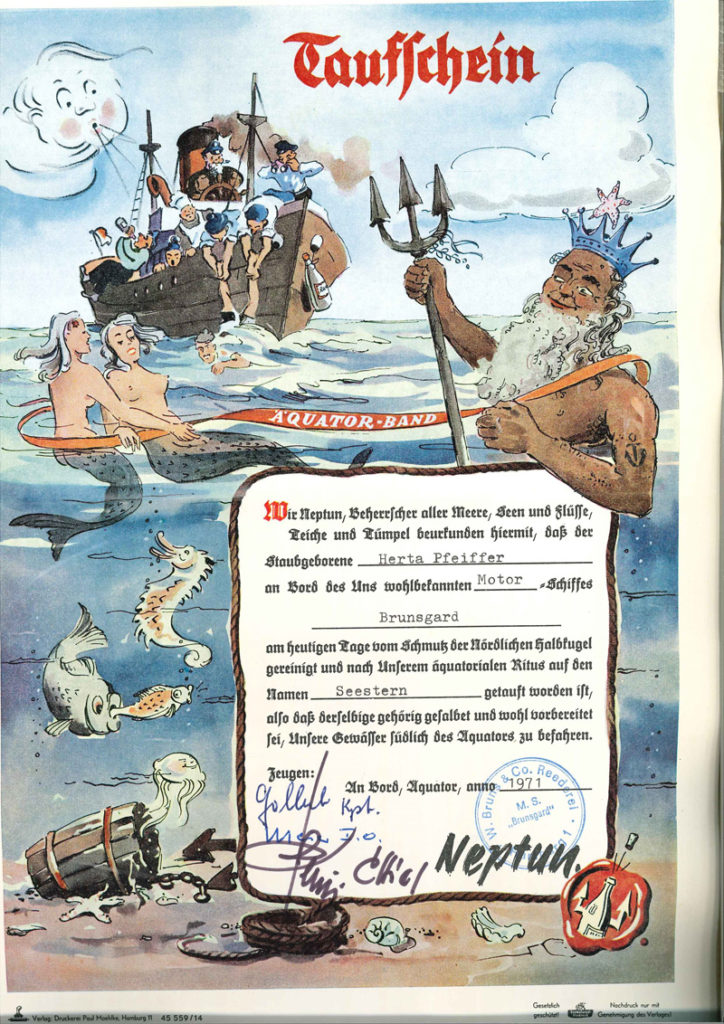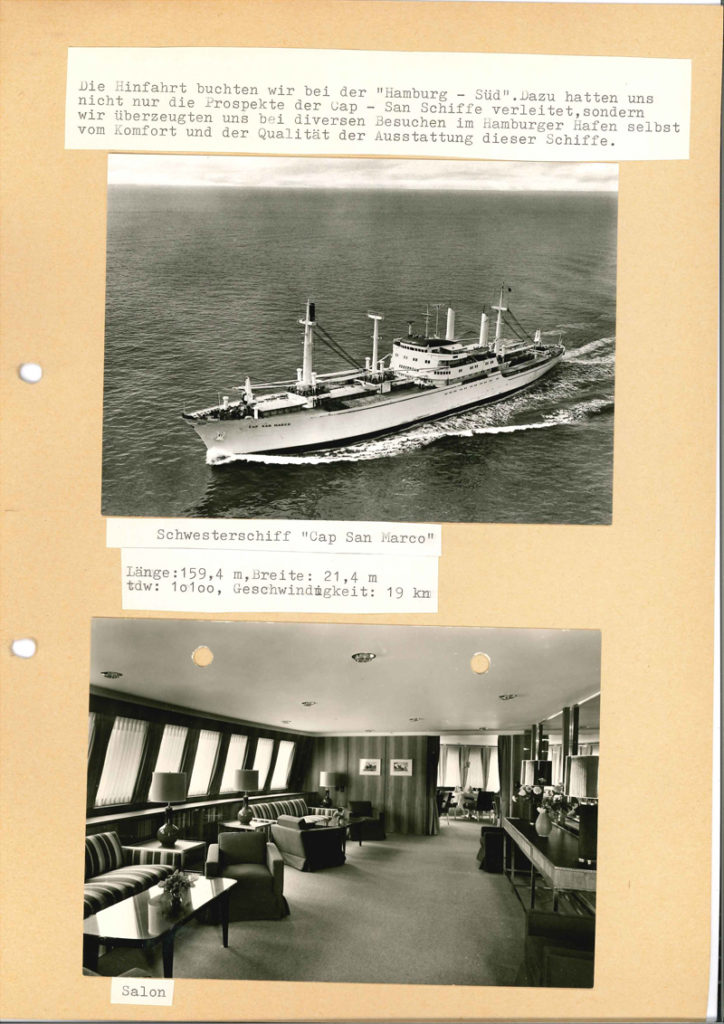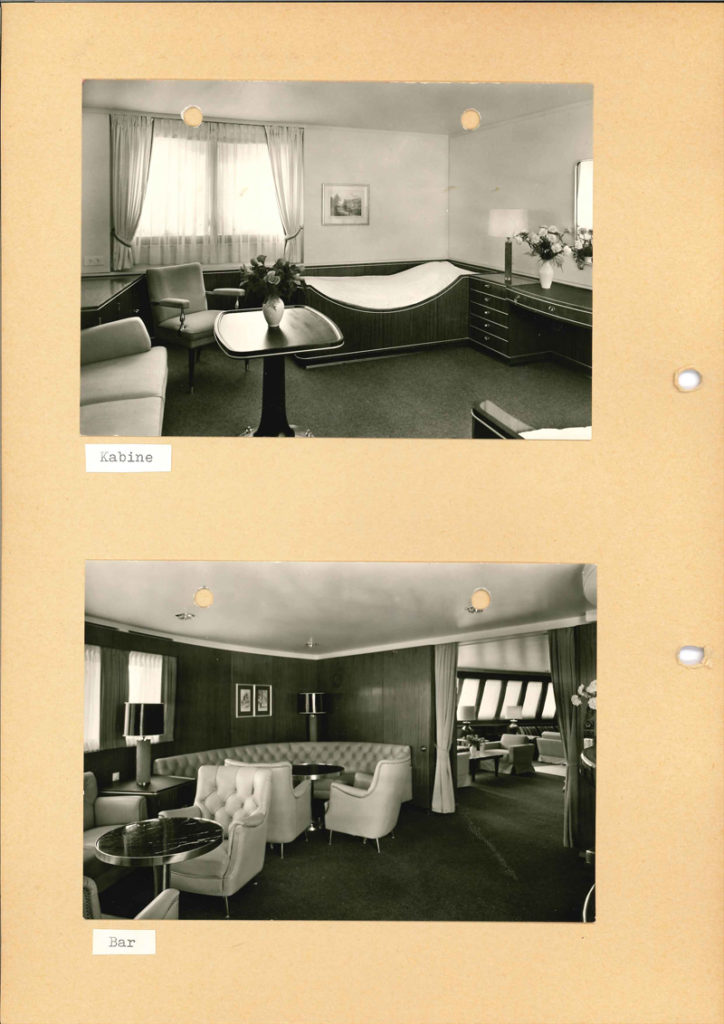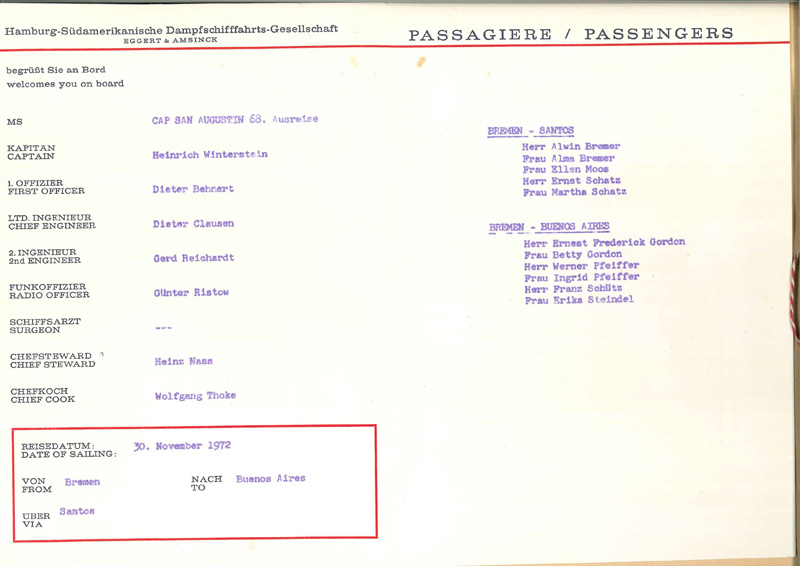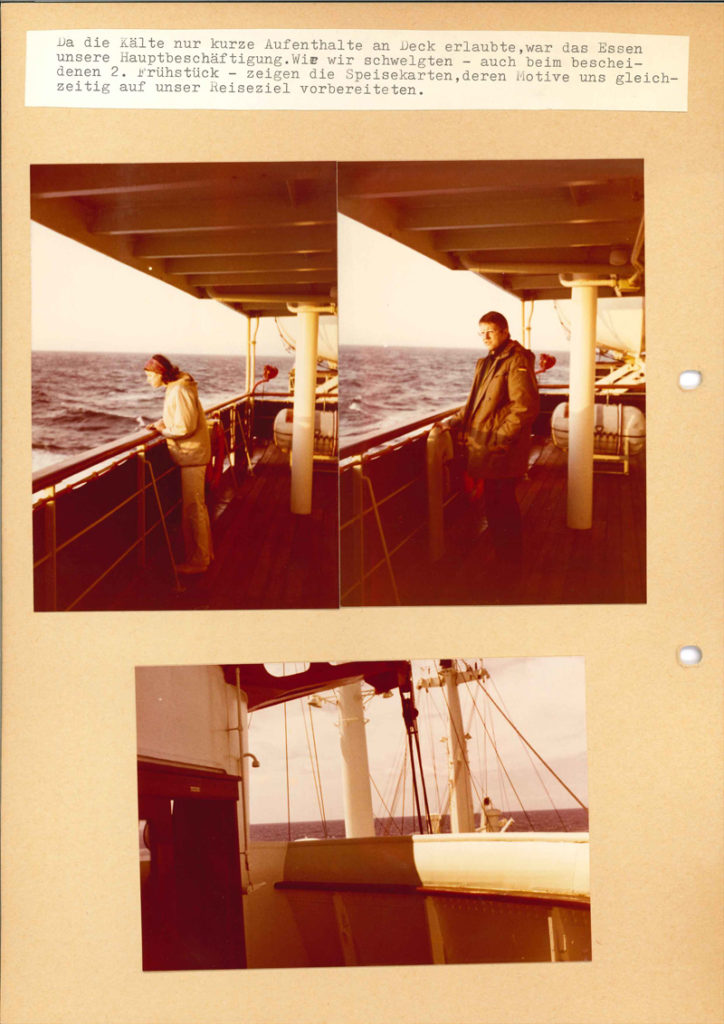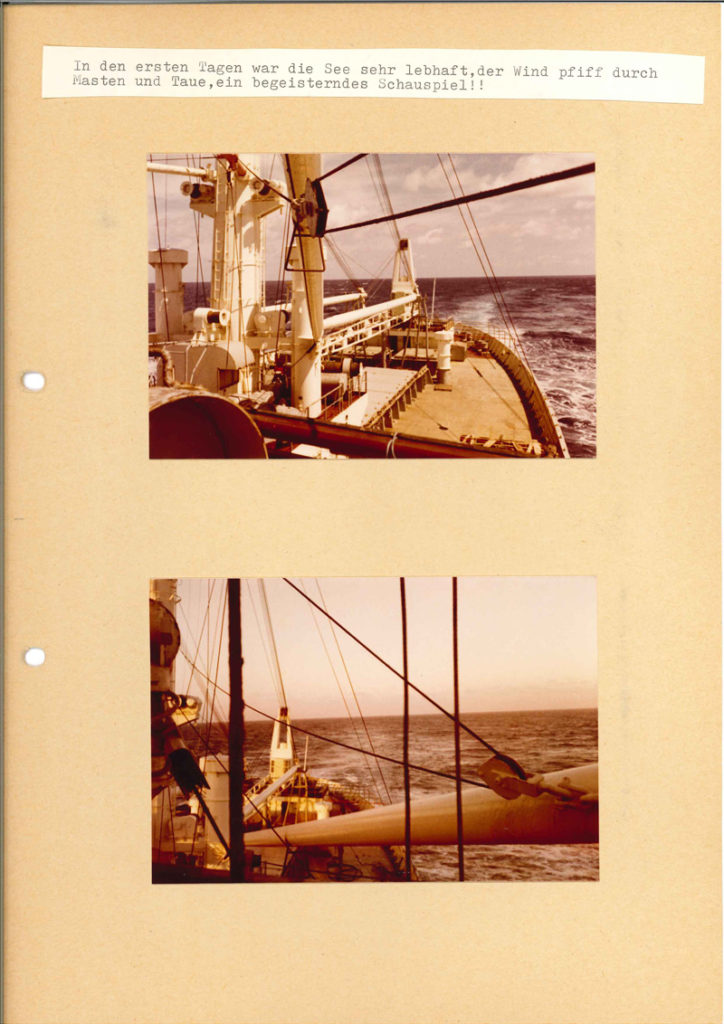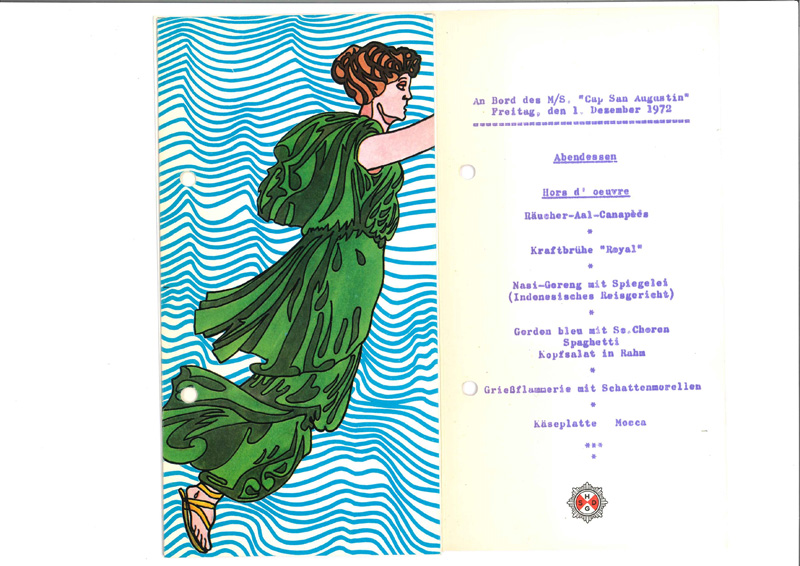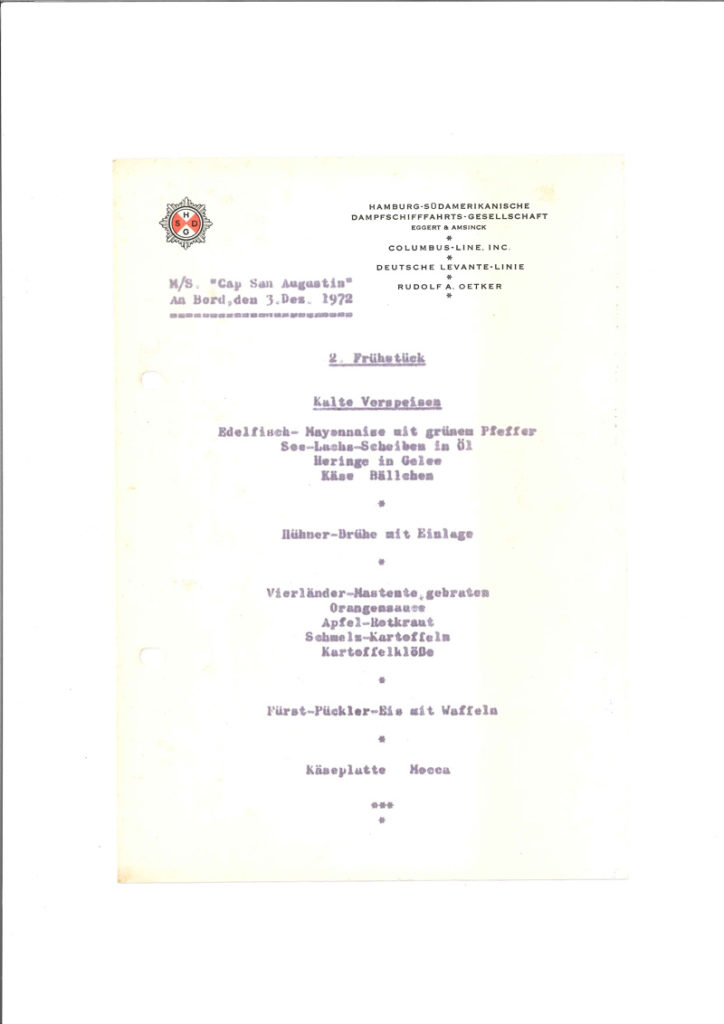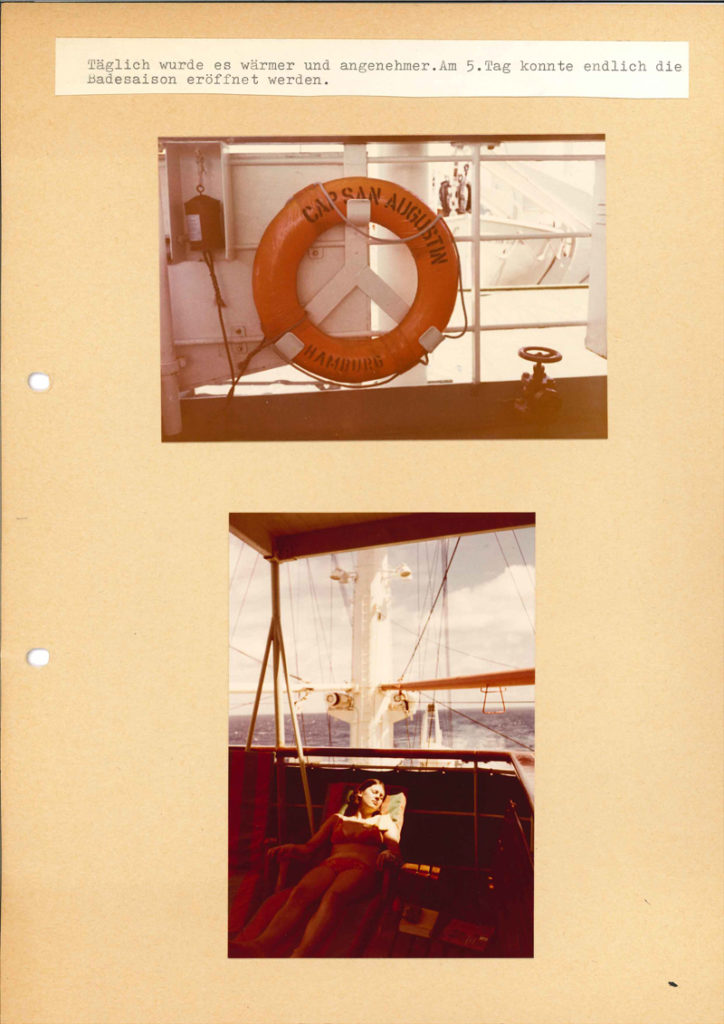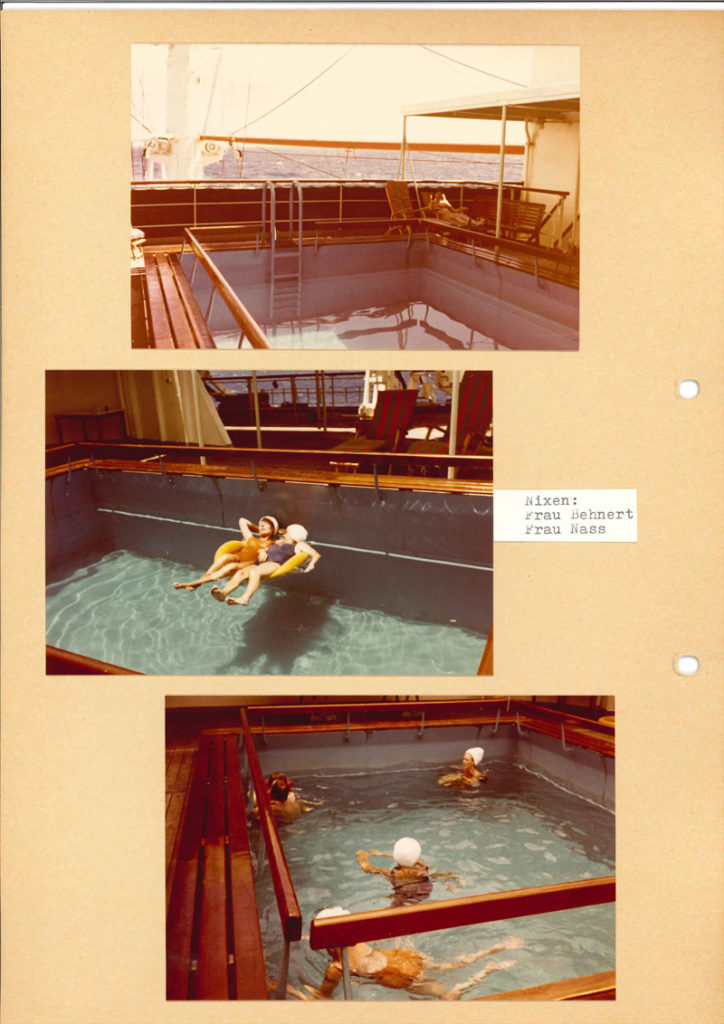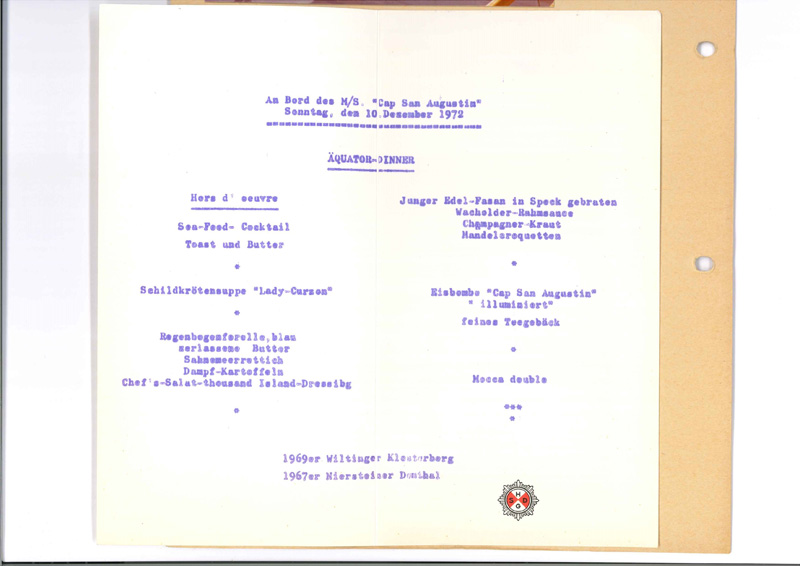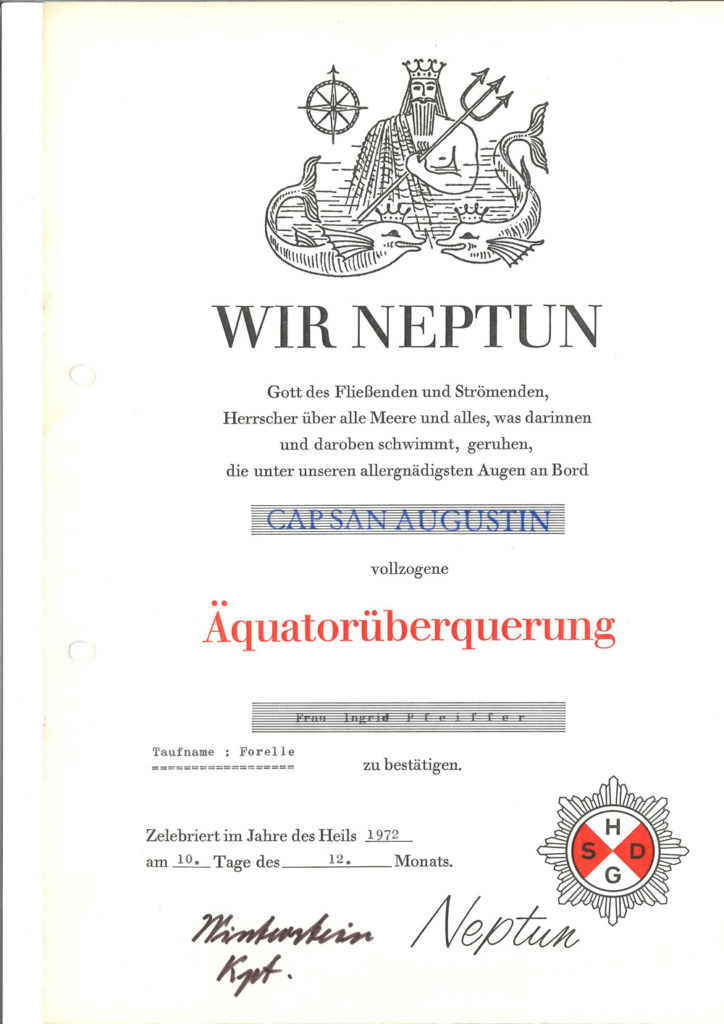Short (also personal) history of freighter voyages
It is certainly difficult to determine who was the first passenger on a cargo ship. A Persian merchant, an envoy from the Three Rivers country or a Chinese explorer? We probably will not be able to determine that.
A “little” later the apostle Paul was on his way from the Holy Land to Rome. He, too, was probably a passenger on a cargo ship.
Cargo ships, warships and explorer ships remained the primary means of transport.
The discovery of new continents and the progress of colonization demanded new means of transport for settlers, emigrants, soldiers and state and administrative officials. The development of combined cargo and passenger ships began. At first sailing, but then more and more with steam engines, the passengers are “shipped” from e.g. Hamburg to New York. Hamburg-Amerikanische Paketfracht-Actiengesellschaft (Hapag), for example, offers a crossing in 1867 for 60 thalers in steerage.
Albert Ballin, the legendary director of Hapag, was probably one of the first to come up with the idea of offering a “pleasure trip”. In the winter of 1890/1891 he sent the “Augusta Victoria” with 241 passengers on a voyage to the Orient and Italy lasting several weeks. This voyage was the introduction to the cruise journeys that are so widespread today. Until the middle of the 20th century, however, cargo and passenger ships remained the main means of transport for getting passengers from A to B.
Then the triumphal march of the airplane began. Up until the beginning of the 80-90 years, there was an ever decreasing number of passenger seats on conventional cargo ships. These were then displaced by the container ships, which were built without passenger facilities right from the start. The end of passenger travel on cargo ships?
No: See “Our company history since 1982 : Pfeiffer international freighter voyages”.
We have often been asked where our enthusiasm for freighter voyages stems from. Therefore at this point a small insight into the origin of our love for seafaring.
Perhaps our ancestor Anton Pfeiffer already influenced our genes in the 18th century. He went to sea from Holland as a whaler.


